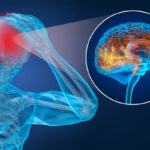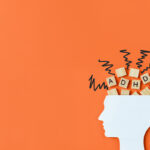Manic depression, now more commonly known as bipolar disorder, is a life-long mood disorder affecting about 2.6% of Americans. The extreme fluctuations in mood and behavior caused by manic depression can be managed with medication and other treatments.
In today’s blog post, we provide the information you need to know about manic depression.
What is Manic Depression?
Manic depression impacts mood, energy, behavior, and thinking patterns with shifts that can last for as little as a few hours or up to several months. As a result, it causes disruptions that interfere with day-to-day life. States related to manic depression include:
- Euthymia: Your mood remains “normal,” allowing you to manage tasks, work or go to school.
- Manic episodes: You experience a highly energized level of mental and physical activity impacting emotions, thoughts, behavior, and talkativeness. People notice a difference in your behavior which can cause you to take risks that affect your social life, finances, or health. Extreme episodes cause delusions or hallucinations.
- Depressive episodes: You are depressed with symptoms such as fatigue, loss of appetite, and feeling worthless or hopeless. You also lose interest in activities that usually bring you joy.
The level of change depends on the type of manic depression you have.
What are the Different Types of Bipolar Disorder?
You can be diagnosed with three types of bipolar disorder:
- Bipolar I disorder: Experiencing one or more episodes of mania, with most people experiencing both mania and depression for about two weeks. Manic episodes last at least a week or are severe enough to require hospitalization. Some people experience both manic and depressive symptoms.
- Bipolar II disorder: Experiencing depressive episodes with less impairing hypomanic episodes without full manic episodes. This type of bipolar disorder tends to cause chronic depression.
- Cyclothymic disorder (cyclothymia): Chronically unstable mood state with hypomania and mild depression last at least two years. Although there can be brief intervals of euthymia, they last for less than two months.
If you don’t meet the criteria for these diagnoses, you are considered to have “other specified or unspecified” bipolar disorder.
What are the Symptoms of Manic Depression?
Symptoms depend on the type of disorder you have. However, changing mood states or episodes lasting at least one week are common symptoms. Episodes can be depressive, hypomanic, or periods of euthymia appearing before your mood changes. People around you will sense you aren’t “acting yourself.” The symptoms are broken down into the type of episode you are experiencing:
Manic Episodes
- Extreme happiness, hopefulness, and excitement
- Sudden and severe changes in mood
- Feeling restless
- Rapid speech
- Racing thoughts
- Increased energy
- Less need for sleep
- Becoming overly impulsive
- Poor judgment
- Making unattainable plans
- Reckless and risk-taking behavior
- Inflated self-esteem
- Hallucinations and delusions in severe episodes
Hypomania
Hypomania symptoms are the same as manic symptoms, only milder. As a result, you can socialize, work, and attend school. Because you can function, you might not be aware you are experiencing a hypomanic episode, but others will. It is not uncommon to experience hypomania before falling into severe depression.
Depressive Episodes
- Overwhelming sadness
- Reduced energy
- Fatigue and increased need for sleep
- No motivation
- Feeling hopeless or worthless
- Unable to find pleasure in things you usually enjoy
- Difficulty concentrating
- Inability to make decisions
- Uncontrollable crying
- Irritability
- Insomnia
- Weight loss or gain due to a change in appetite
- Thoughts of death or suicide
If you or a loved one experiences manic, depressive, or hypomania for at least one week, speak to your healthcare provider.
How is Manic Depression Diagnosed?
A mental health evaluation or neuropsychological testing performed by a mental health specialist confirms a manic depressive/bipolar disorder diagnosis. They will assess your symptoms and episode patterns to determine your bipolar disorder type.
One of the most effective methods of diagnosing depression is through neuropsychological testing, a process of problem solving to try and determine the core components of a person’s psychological or mental health problems, personality, IQ, or some other component. In addition to depression, neuropsychological testing can diagnose personality disorders (borderline or narcissistic), depression, anxiety, bipolar disorder, and ADHD.
How is It Treated?
Several treatments help you or your loved one lead a more fulfilling and productive life, including:
- Psychotherapy
- Medications
- Self-management strategies
- Lifestyle changes
- Neurofeedback
The sooner you speak to your doctor, the sooner you can begin treatment.
The Chicago Mind Solutions Difference
Chicago Mind Solutions works with individuals, offering neuropsychological testing and non-invasive treatment for many mental health conditions. For more information about our treatments and teletherapy options, please contact us at (224) 723-5050 or email info@chicagomindsolutions.com.






